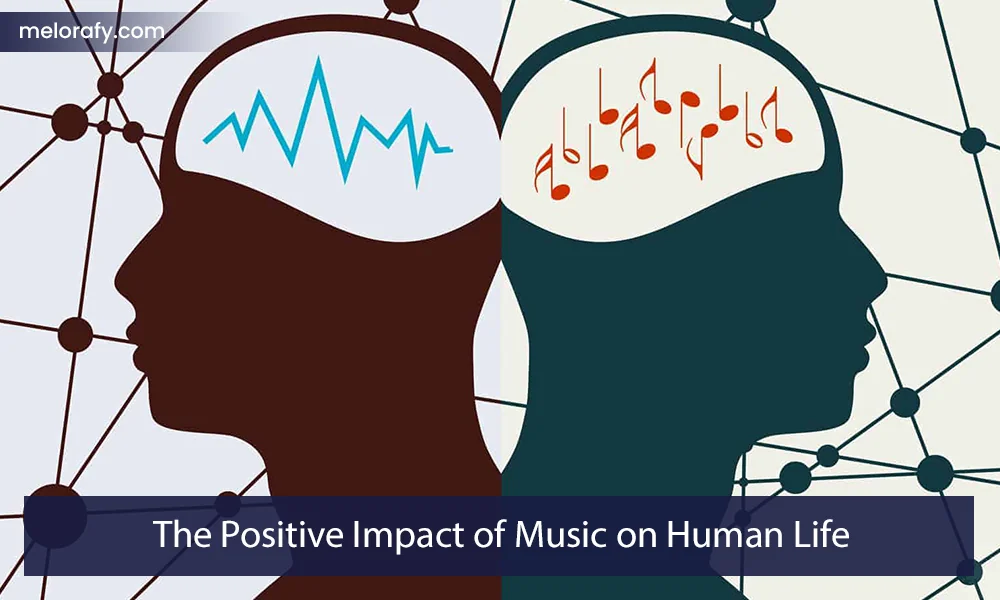
The Positive Impact of Music on Human Life
Music, an art form and cultural activity, holds the power to transform lives with its vast and varied influences on human emotions, cognitive processes, and social connections. This article of melorafy explores the multifaceted ways in which music positively impacts our lives, offering insights into its benefits for mental health, physical well-being, and social bonds.
Enhancing Emotional Well-being
One of the most profound effects of music is on our emotional health. Listening to music can evoke a wide range of emotions, from joy and excitement to calmness and serenity. It serves as a therapeutic tool for managing stress, anxiety, and depression, making it a natural antidote to our daily stresses. The power of music to elevate our mood is backed by numerous studies, indicating that it can stimulate the release of dopamine, a neurotransmitter associated with pleasure and reward.
The Therapeutic Power of Music
Music therapy has emerged as a recognized form of treatment for various psychological disorders. It involves the use of music by trained professionals to promote healing and enhance the quality of life for individuals facing mental health challenges. This approach has proven effective in improving symptoms of depression, anxiety, and even post-traumatic stress disorder (PTSD), showcasing music’s ability to reach deep into our emotional cores and foster recovery.
Boosting Cognitive Functions
Music’s influence extends beyond emotional regulation to cognitive enhancement. Engaging with music, whether through listening or playing an instrument, has been shown to improve memory, attention, and problem-solving skills. For children and adults alike, music education can lead to better academic performance and increased IQ levels. Moreover, music has been found to delay cognitive decline and enhance brain plasticity in older adults, suggesting its potential as a tool for maintaining cognitive health throughout life.
The Mozart Effect
One intriguing aspect of music’s impact on cognition is the “Mozart Effect,” a term coined to describe the temporary increase in spatial-temporal reasoning abilities following exposure to Mozart’s compositions. While the effect has been debated, it highlights the broader truth that music can stimulate our brains in unique and beneficial ways.
Strengthening Social Bonds
Music also plays a crucial role in fostering social connections. It acts as a universal language, bridging gaps between different cultures and bringing people together. Collective music-making and listening experiences, such as concerts, choirs, and festivals, create a sense of community and belonging. These shared experiences can strengthen interpersonal relationships, enhance empathy, and promote cooperation among individuals.
Music and Cultural Identity
Music is deeply intertwined with cultural identity, serving as a means of preserving and expressing the traditions and values of a community. Through music, individuals connect with their heritage and learn about others, fostering cultural understanding and respect. This aspect of music contributes to its power to unite people across diverse backgrounds and beliefs.
Physical Health Benefits
The benefits of music extend to physical health as well. Listening to calming music can lower blood pressure, reduce heart rate, and decrease levels of stress hormones. Music has also been utilized in physical rehabilitation programs to motivate patients and improve their recovery outcomes. Furthermore, engaging in musical activities, such as dancing or playing instruments, promotes physical fitness and coordination.
Music as a Performance Enhancer
Athletes often use music to enhance their performance, leveraging its rhythmic properties to improve their workout efficiency and endurance. The right playlist can serve as a motivational tool, helping individuals push through physical barriers and achieve their fitness goals.
![]()
The positive impact of music on human life is undeniable. From enhancing emotional well-being and boosting cognitive functions to strengthening social bonds and promoting physical health, music’s benefits are as diverse as they are profound. As we continue to explore and understand the intricate ways in which music influences us, it becomes clear that its value extends far beyond entertainment. Music is a vital part of human culture and an essential component of a fulfilling life.
Social effects of listening to music
Researchers believe that one of the most important functions of music is that it creates a sense of cohesion, group unity and communication between people. For example, when the national anthem is played in sports fields or protest songs during demonstrations and marches, it makes people feel that they have a common goal. Or when a couple sends love songs to each other, they feel that their bond has deepened.
One of the most interesting and important social effects of music is in creating a safe attachment between mother and child. The lullabies that a mother sings for her child and the relationship that is formed in this way show that music can be effective in establishing a good relationship and a sense of cohesion.
![]()
The effect of music on reducing stress and strengthening the immune system
Naturally, stress cannot be eliminated, but the ability to manage stress and adapt to stressful factors can be changed. Research has shown that music can be very effective in this process. In a study conducted in 2013, three groups of participants were faced with a stressful factor and then they took a stress test. The difference between the three groups was that one group played relaxing music, one group played the sound of water waves, and one group did not play any special sound.
The results showed that those who listened to relaxing music were able to eliminate the effects of the stress they had experienced much faster. You must have heard and read many times that stress weakens the immune system. Therefore, if we can manage our stress, we will eventually have a stronger immune system. Music can be one of the factors that help us in this way.